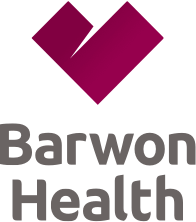Anaesthesia and Acute Pain Management
We provide anaesthesia services for all elective and emergency surgery at University Hospital Geelong, averaging 17,000 procedures per year. We provide anaesthesia for the following specialties:
- Cardiac and thoracic surgery (including TOE)
- Obstetrics and gynaecology
- Paediatric surgery
- Orthopaedics
- Plastic surgery
- General surgery and endoscopy
- Vascular surgery
- ENT and Maxillo-facial surgery
- Urology
- Ophthalmology
We perform approximately 10,000 general anaesthetics, 3500 regional anaesthetics, 600 combined GA/regional anaesthetics and 3500 sedations per year. The recent introduction of ultrasound guidance for regional blockade has seen a significant increase in the number of regional blocks performed.
We provide anaesthesia for 11 operating theatres, as well as delivery suite, radiology and cardiology. We also provide a support service for medical emergencies on the wards and the emergency department, including involvement in trauma calls and airway management in EMD and ICU.
As well as anaesthesia services, the department also manages the acute and chronic pain services, and the peri-operative unit, including cardiopulmonary exercise testing (CPX) for pre-operative assessment of patient.
The role of the anaesthetist
The anaesthetists at Barwon Health are highly trained medical specialists, who have a minimum of six years training in anaesthesia, pain management, resuscitation and management of medical emergencies. They are all Fellows of the Australian and New Zealand College of Anaesthesia.
During your operation, they are responsible for all aspects of your wellbeing, including:
- General anaesthesia (fully asleep) and sedation (half asleep).
- Analgesia, or pain control, both during and after your operation.
- Managing other medical conditions such as diabetes and heart problems.
- Managing fluids and blood transfusions.
- Monitoring and preventing complications of anaesthesia or surgery, and treating them if they do occur quickly and effectively.
The anaesthetist will see you before your operation to discuss different aspects of your anaesthetic. This may occur on the day of your operation, or earlier, in the peri-operative clinic, where further tests may be organised. They will ask you about:
- Any medical conditions or recent illnesses, particularly heart conditions, asthma or breathing difficulties, diabetes or other health concerns.
- Medication you take and any previous reactions to drugs or allergies.
- Any previous operations and particularly any problems arising from the anaesthetic.
- Your surgical condition, and the planned operation.
- Any dentures, loose teeth, caps or crowns.
They will also discuss with you the best type of anaesthetic for your operation. This may be:
- General anaesthesia – where you are unconscious during the operation
- Regional anaesthesia – where an injection of local anaesthetic makes the part of the body that is being operated on numb, allowing you to be awake during the operation, but pain free.
- Local anaesthesia – where local anaesthetic is injected at the site of surgery to make just the area of the operation numb, supplemented with sedation.
You will be able to discuss the options with your anaesthetist to decide what's best for you.
Last Modified: Monday, 27 February 2023
Contact
Address: University Hospital Geelong, Level 4, Bellerine Street
Hours: For general enquiries: 8.00am to 4.30pm, Monday to Friday
Car Parking: Metered street parking available
Phone: 03 4215 1900
After Hours: 03 4215 0000
